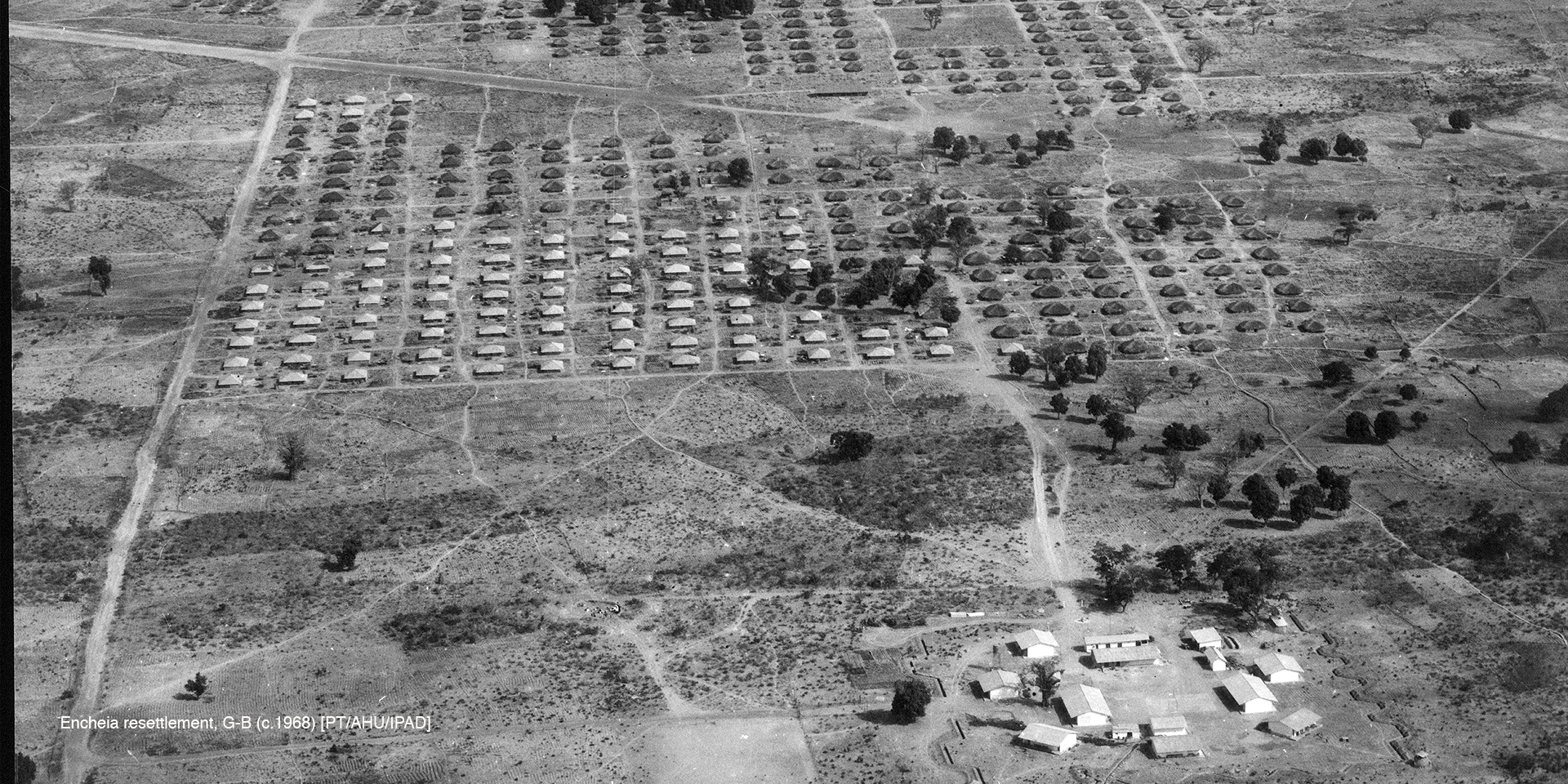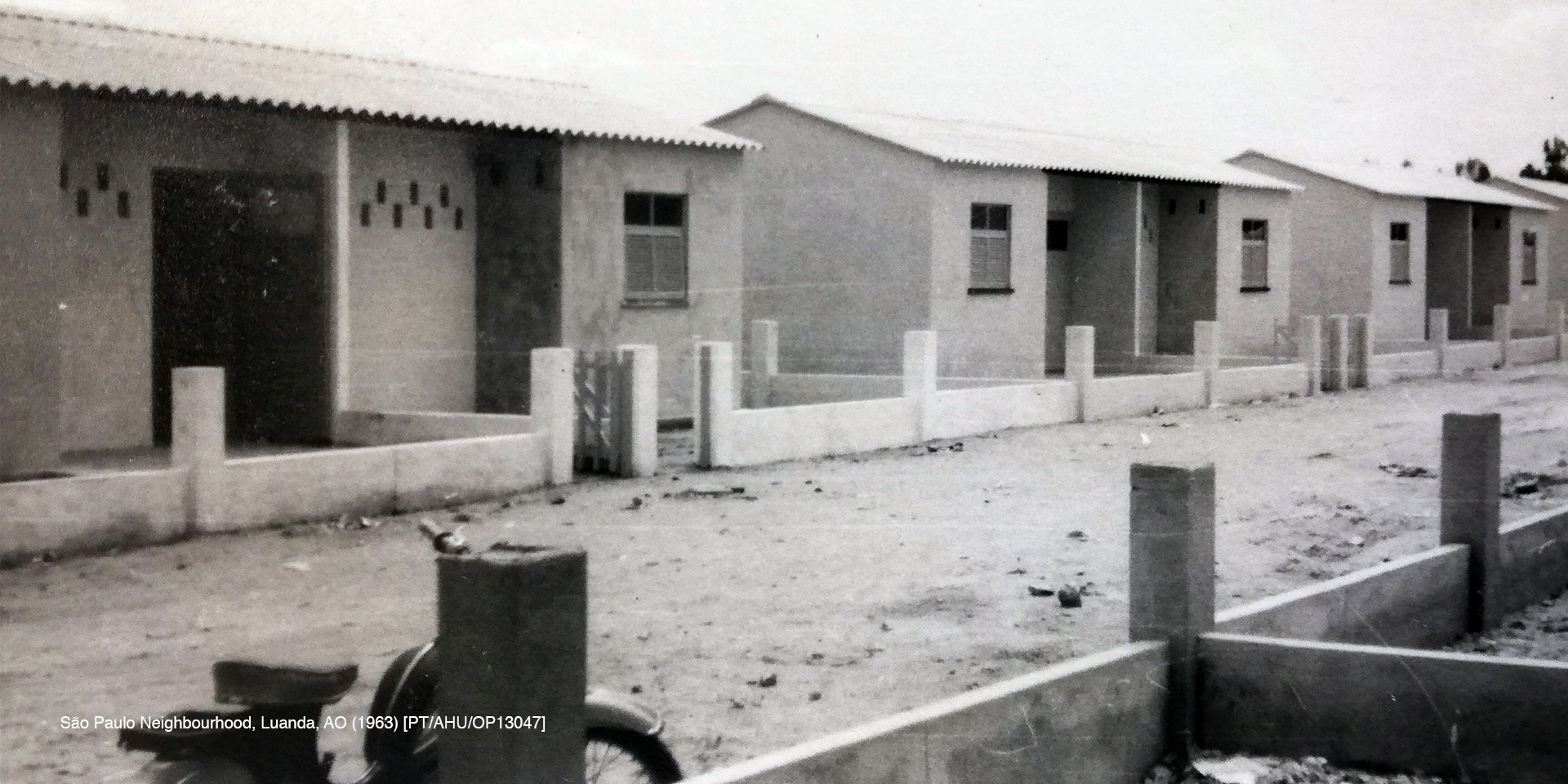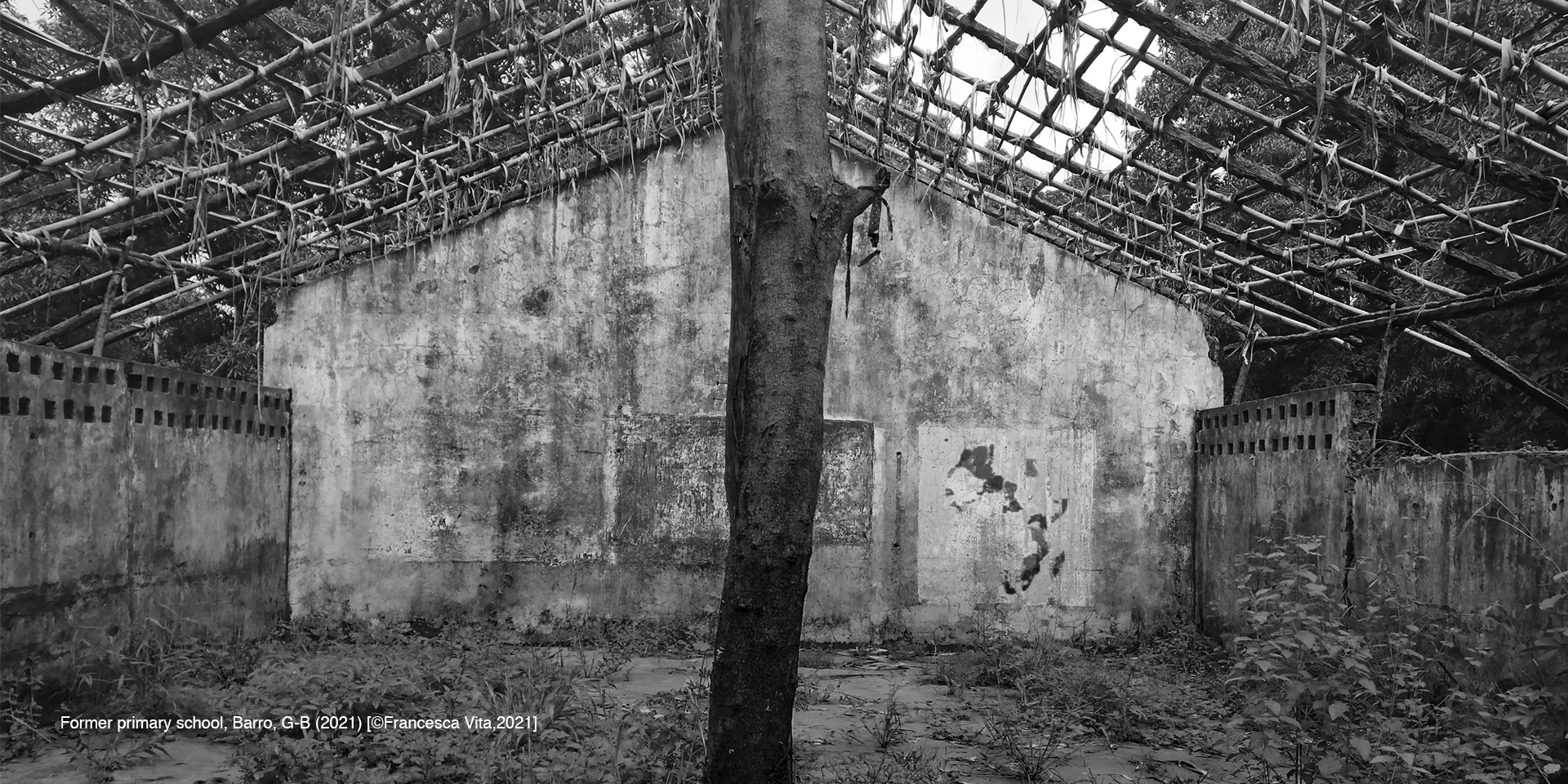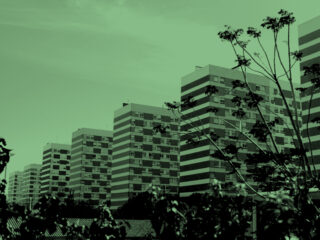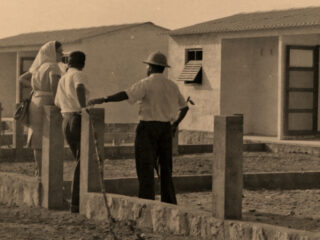ArchWar. Dominance and mass-violence through Housing and Architecture during colonial wars. The Portuguese case (Guinea-Bissau, Angola, Mozambique): colonial documentation and post-independence critical assessment.
What was the role of Architecture supporting Portuguese colonialism during the colonial war (1961-74)? Starting from the scarce bibliography that questions Architecture, Colonialism and War, but also pondering the interplay between Violence and Colonialism, the research focuses on the production of Housing during the liberation wars in the former Portuguese Continental Africa, and its repercussions in the immediate post-independence of Guinea-Bissau, Angola and Mozambique.
The team is composed of Portuguese, Angolan, Mozambican and Guinean researchers, architects, historians and archivists.
ISCTE-IUL
Filipa Fiúza (Co-PI)
c.1968 [PT/AHU]
Summary
The research will assess how this housing terminology was used by different agents and its post-independence reformulation. Supported by international State of the Art, these reading keys will be applied to the Portuguese case testing new approaches, highlighting the war effort in the maintenance of colonialism and use of housing as a “weapon”, both in counterinsurgency operations and restrictions on colonial populations mobility, through modern strategic planning and urban zoning.
It entails 2 phases:
1)assessment of the housing production carried out in the last 14 years of colonialism (and late Salazarism), considering the colonial society and the 3 agents of Colonial Public Works (CPW) involved, through archival and documentary treatment, cartography and historical description;
2)its identification and critical analysis in the immediate period of 1974/75 (abandonment, reconfiguration, appropriation) and its contribution to inequality in access and housing quality (plastic, technical, functional) by post-independence societies.
The research explores the role of war in the emergence of control mechanisms based on Architecture and Urbanism, taking housing as epicentral. It observes 3 scenarios:
a)Middle-class and affordable urban expansion neighborhoods, built over slums, to lodge and control populations;
b)Settlements located in strategic economic areas;
c)Rural resettlements resulting from the massive displacement of African peasants.
A continuous reading between colonization and post-independence will be traced, relating the current right to housing with the different residential infrastructures inherited from the colonial period.
In the 1st phase, the study considers 3 groups of inhabitants involved in colonial narratives:
a)European settlers;
b)Assimilados;
c)African populations.
It analyzes urban and rural landscapes and identifies the 3 main colonial agents:
a)Self-employed Architects, in urban environments, using the architectural culture on collective housing programs;
b)Technicians (architects, engineers and others) from the different CPW departments, intervening on urban and rural territories, focused on compromise solutions between a disciplinary approach (idealistic) and an efficient response (pragmatic) to meet quantitative demands, with relative success in cities (medium-scale neighborhoods for African workers) and settlements of natural resources exploitation (agricultural and mineral);
c)Military with different backgrounds, making use of orthogonal grids and standardization techniques, with significant efficiency in the production of single-family housing for rural populations.
Their performance will be analyzed and described within the methodologies of Architecture, Urbanism and History, based on concepts related to practices of CPW, such as
i)Segregation;
ii)Control in design;
iii)Standardizatio;
iv)Modernization;
v)Design with the climate;
vi)Mass-violence;
vii)Villagisation.
Specific roles played by corporative and non-governmental institutions as Gulbenkian in war zones will be considered at this point. Studying 3 countries from a comparative perspective will allow to approach Portuguese colonial practices comprehensively and identify national specificities. Overseas and Military Historical Archives have extensive documentation from CPW and military departments on housing production (architecture, urban plans, reports). Its treatment by the current project will make it accessible to the scientific community.
Team
The team is composed of Portuguese, Angolan, Mozambican and Guinean researchers, architects, historians and archivists.
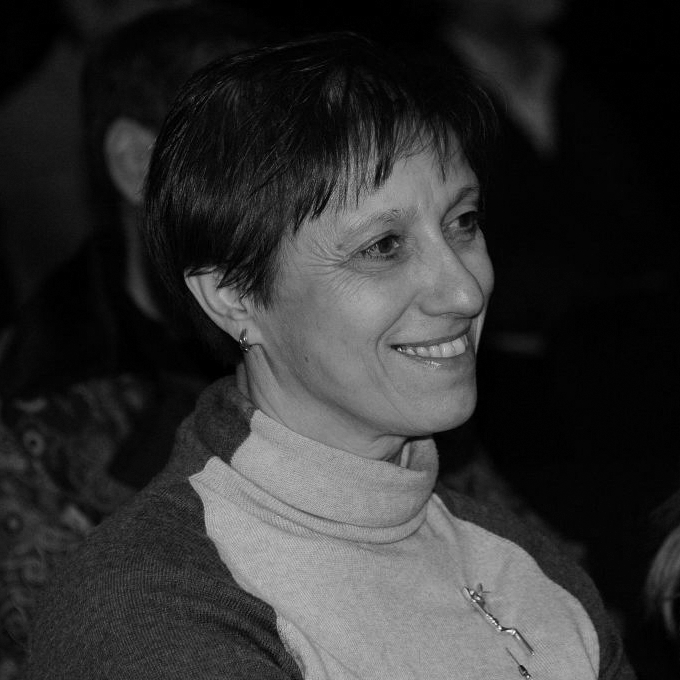
Ana Canas Delgado Martins
RESEARCHER
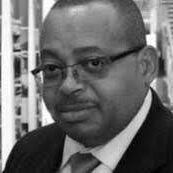
António Pereira Gameiro
Researcher
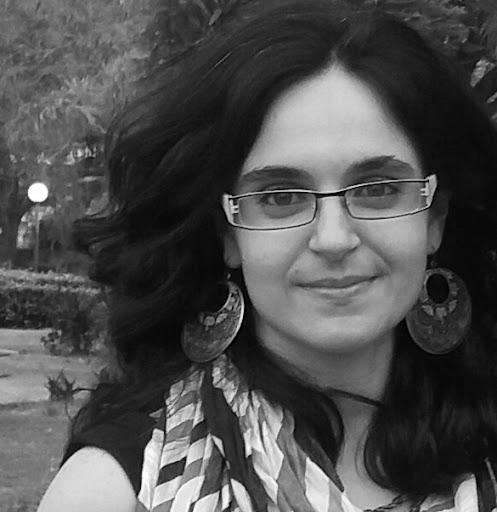
Jéssica Lage
Researcher
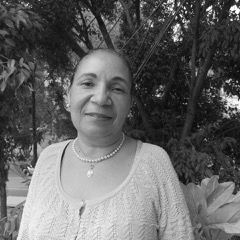
Maria Alice Vaz de Almeida Mendes Correia
RESEARCHER
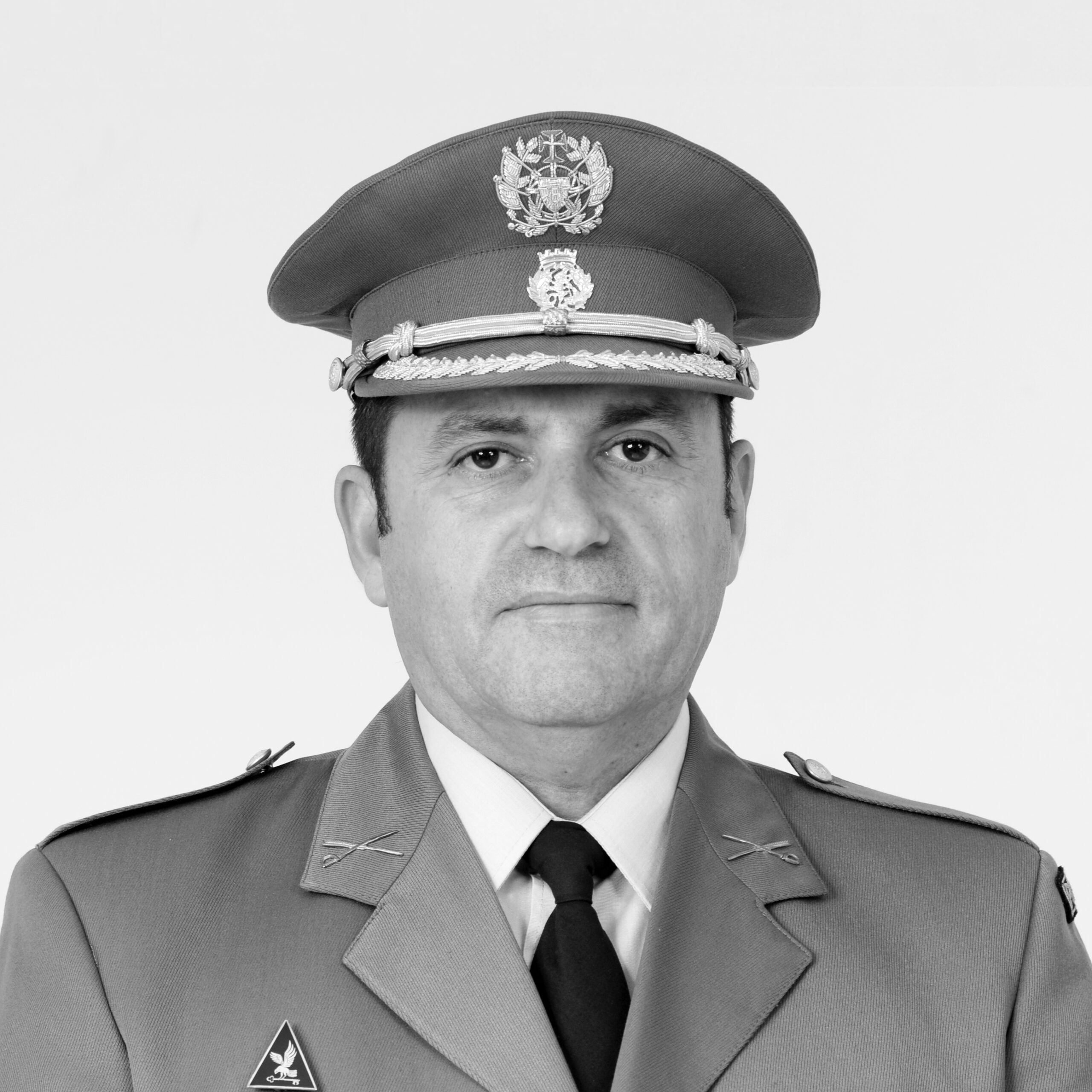
Major Joaquim da Cunha Roberto
RESEARCHER
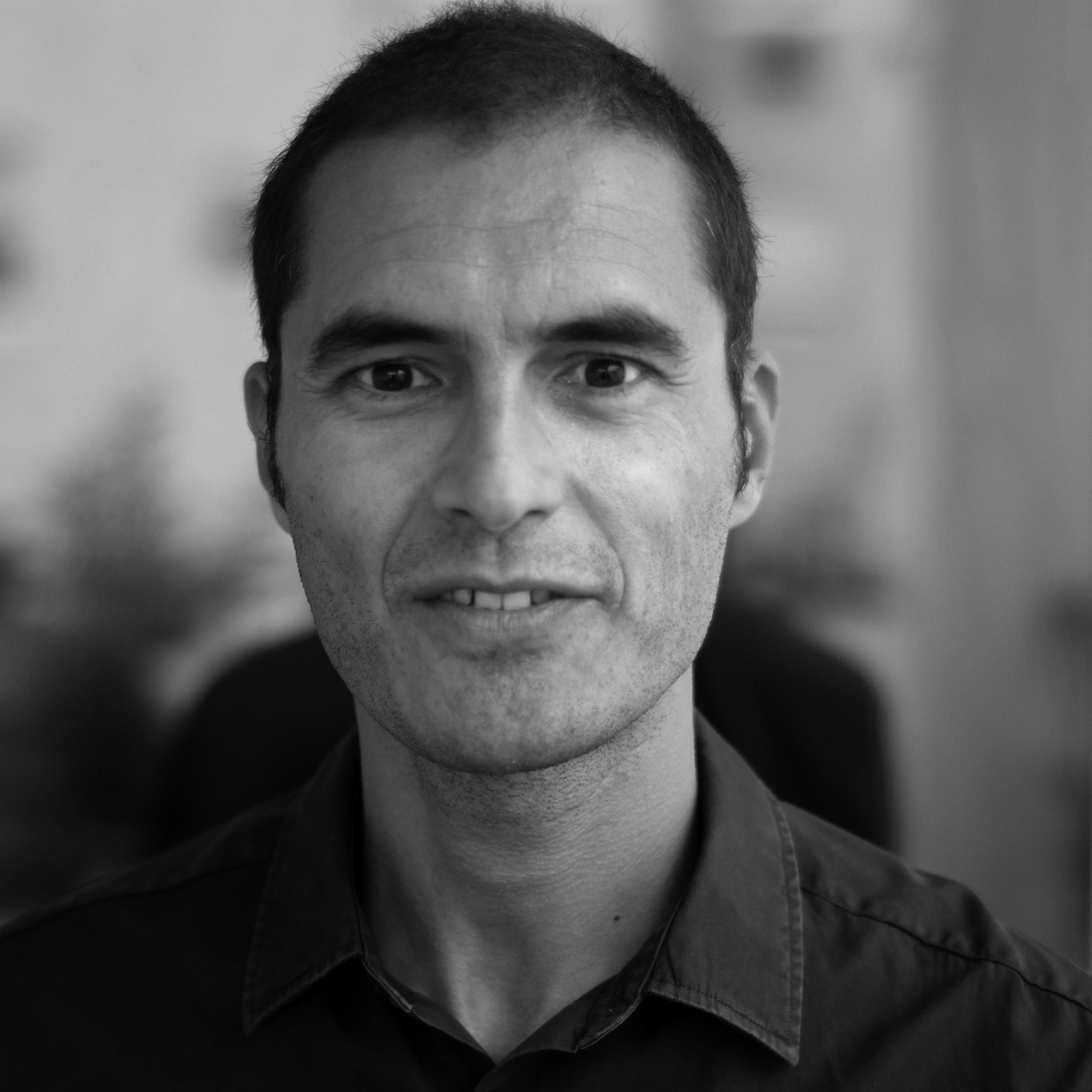
Ricardo Costa Agarez
Researcher
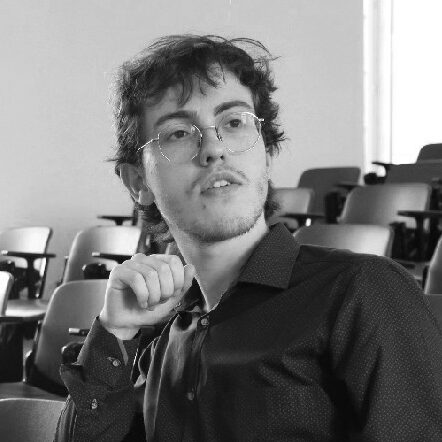
Gonçalo Margato
Researcher
